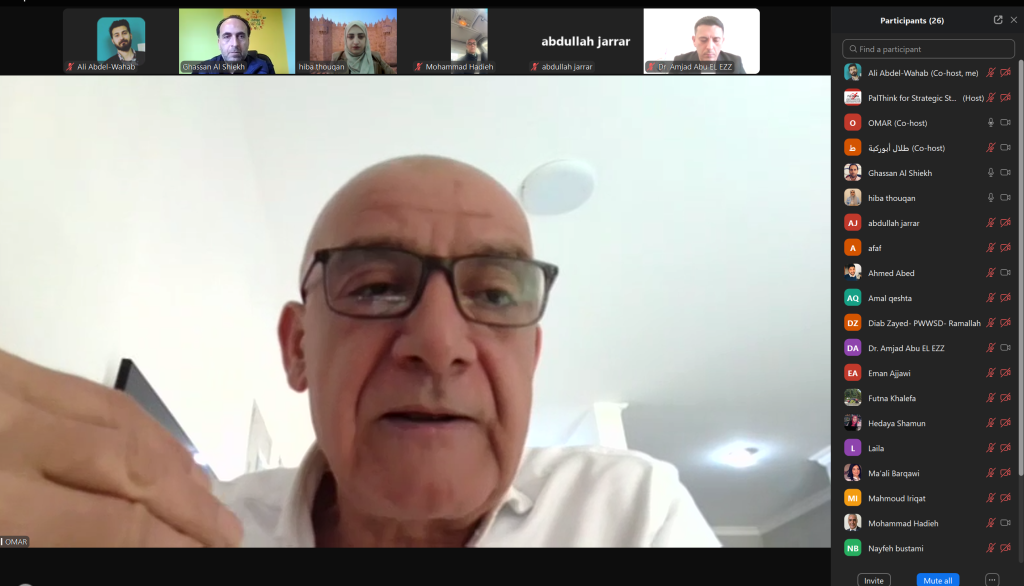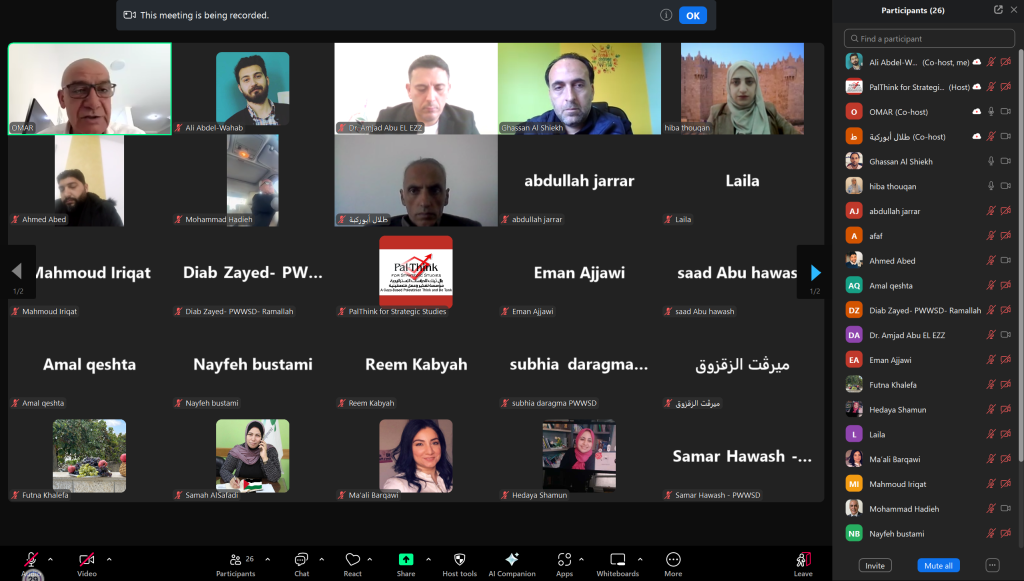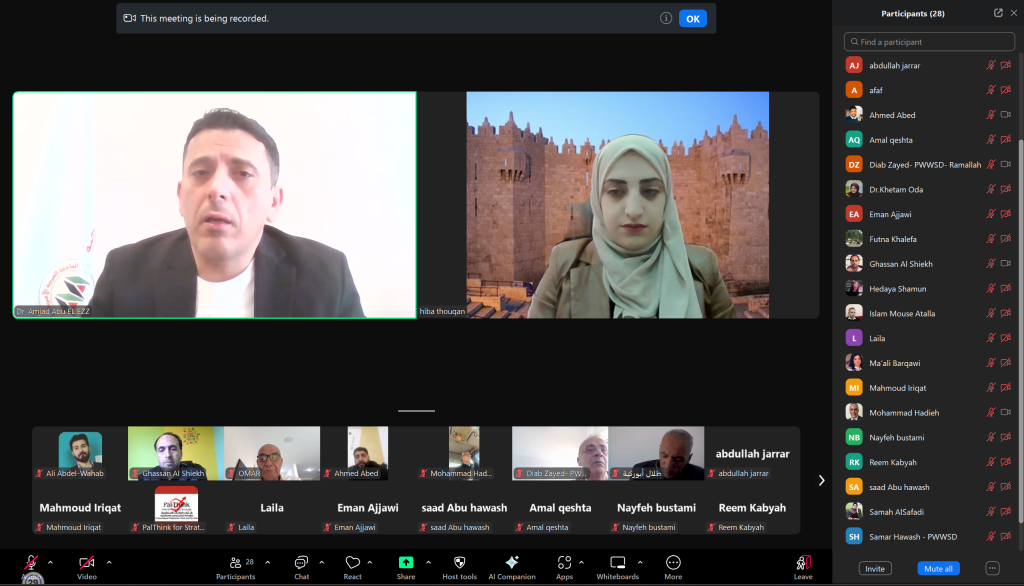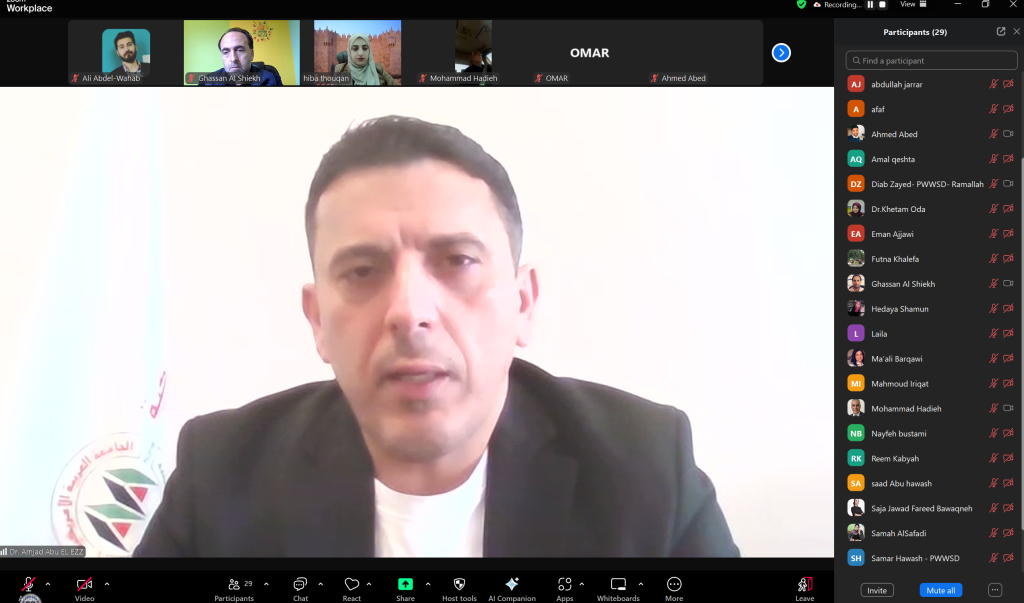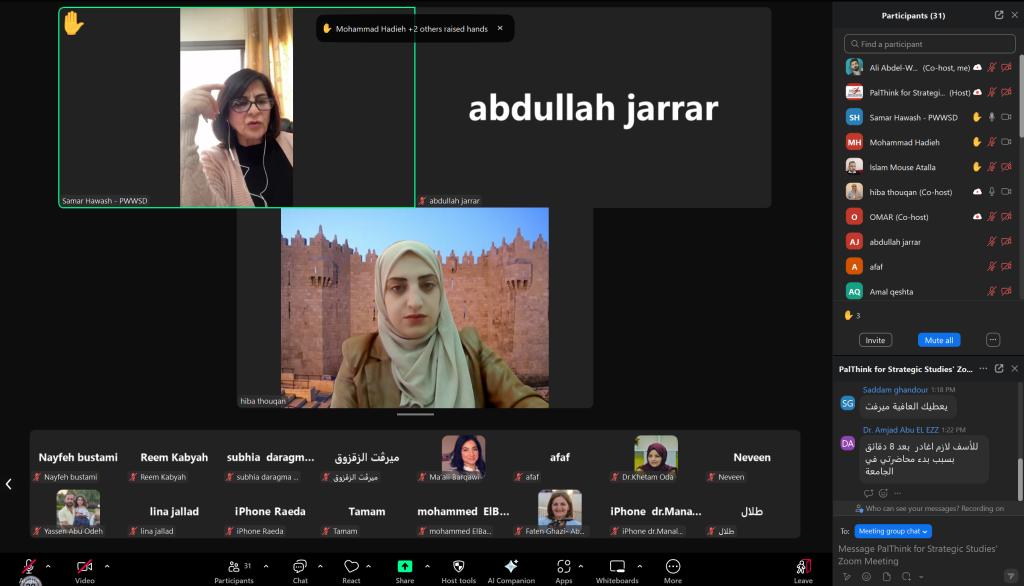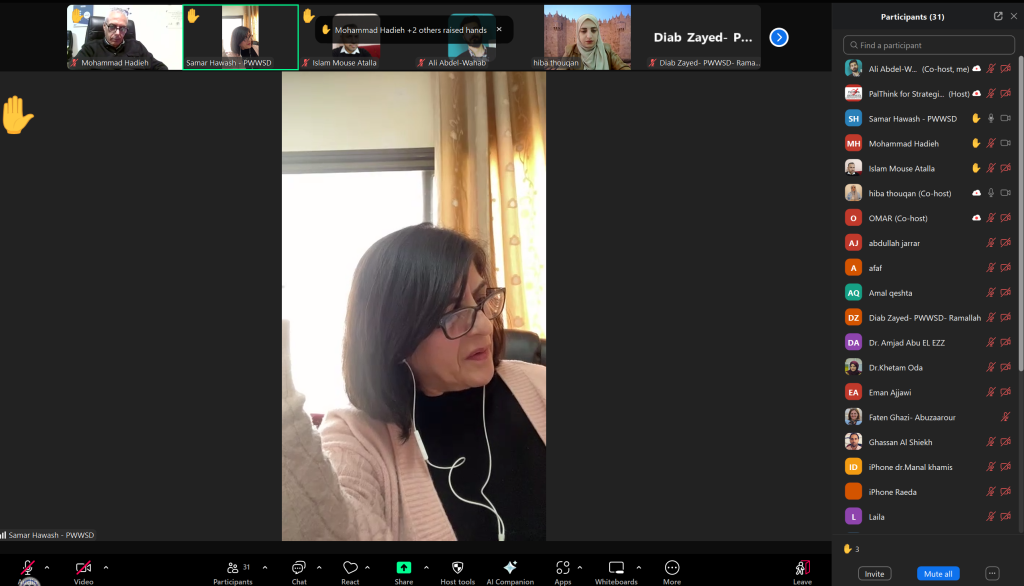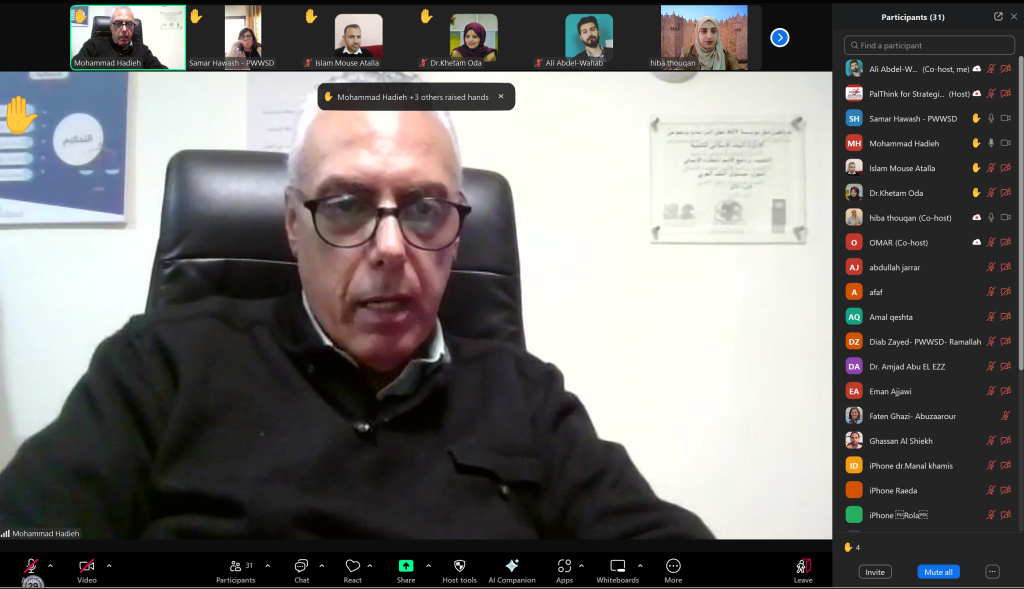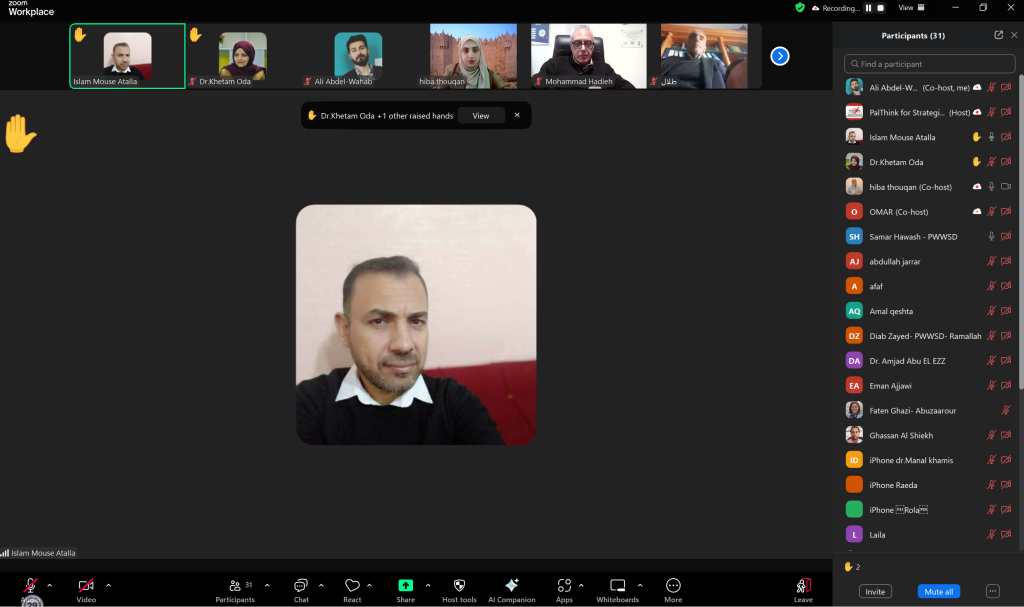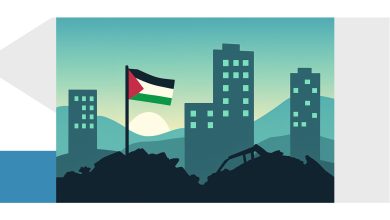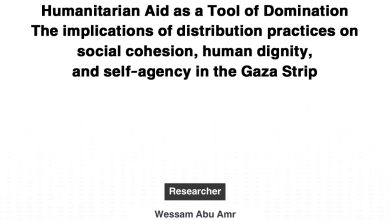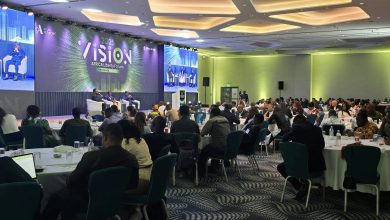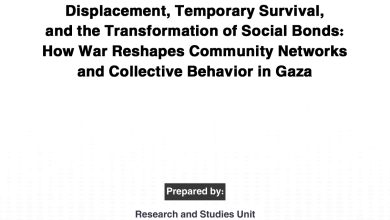PalThink for Strategic Studies Continues the Future Foresight Project in Palestine in Its Third Session in Partnership with 15 CBO

A group of Palestinian civil society organizations, including ACT for Studies and Conflict Resolution, Amjad Association for Creativity and Community Development, Palestinian Working Woman Society for Development, Al-Ataa Association, South Media Women’s Forum, and Al-Majd Association for Community Development, held a special meeting on Monday, March 9, 2025, to discuss and present three policy papers as part of the “Palestinian Civil Society contributes actively to Shaping the Palestine’s Future” project. This initiative, overseen by PalThink for Strategic Studies, aims to strengthen the role of Palestinian civil society in shaping future policies.
The event was attended by a distinguished group of researchers who contributed to the policy papers, alongside academics, experts, civil society representatives, and individuals interested in Palestinian affairs from across Palestine and the Arab world, totaling 37 participants.
The session opened with welcoming remarks from Mr. Omar Shaban, Director of PalThink for Strategic Studies, emphasizing the importance of policy papers in supporting decision-making processes and the crucial role of civil society in shaping Palestine’s future, particularly in light of the current political and social changes.
The first paper, titled “Towards Practical Strategies to Overcome the Identity and Critical Thinking Crisis Among Palestinian Youth Post-October 7”, was prepared by researchers Amal Qishta and Amjad Abu Al-Ezz. This paper explored the challenges faced by Palestinian youth amid the ongoing crisis, particularly after the events of October 7, and examined the impact of these changes on national identity and critical thinking. It also presented several strategies to strengthen youth resilience and guide them toward positive and impactful societal roles.
The second paper, titled “The Future of Jerusalem Amid Political and Regional Changes: A Forward-Looking Analysis”, was prepared by researchers Rami Murad and Mahmoud Erekat. It focused on political and regional developments affecting Jerusalem’s future, exploring potential scenarios for the city’s political status in light of shifting regional and international dynamics. The paper also highlighted the challenges Palestinians face in preserving Jerusalem’s identity and proposed alternative policy directions for the city’s future.
The third and final paper, titled “Palestinian Women: Resilience in War and Their Role in Post-Conflict Society in Gaza”, was prepared by researchers Mervat Al-Zaqzouq and Diab Zayed. It examined the role of Palestinian women in enduring the consequences of wars and conflicts, as well as the social and economic impact of repeated hostilities on their lives. The paper further discussed the challenges that hinder Palestinian women’s empowerment in the post-conflict phase and outlined potential mechanisms to strengthen their role in building a more stable and prosperous society.
Following the presentation of the three papers, the floor was opened for discussion and interaction between the researchers and participants. Many questions and recommendations were raised, with attendees emphasizing the significance of such sessions in addressing critical issues affecting Palestine’s future. They also stressed the importance of implementing the policy recommendations and ensuring that decision-makers and relevant institutions adopt these insights to develop sustainable policies that improve Palestinian society and reinforce its resilience against ongoing challenges.
This event highlights the importance of the project in strengthening Palestinian civil society’s role in shaping policies by building a coalition of Palestinian community organizations and organizing roundtable discussions on pressing political and social issues. Through these activities, research papers will be produced to provide practical solutions to Palestine’s challenges. The project will also help deliver essential policy recommendations to decision-makers, increasing the likelihood of achieving necessary reforms in various aspects of Palestinian life.
